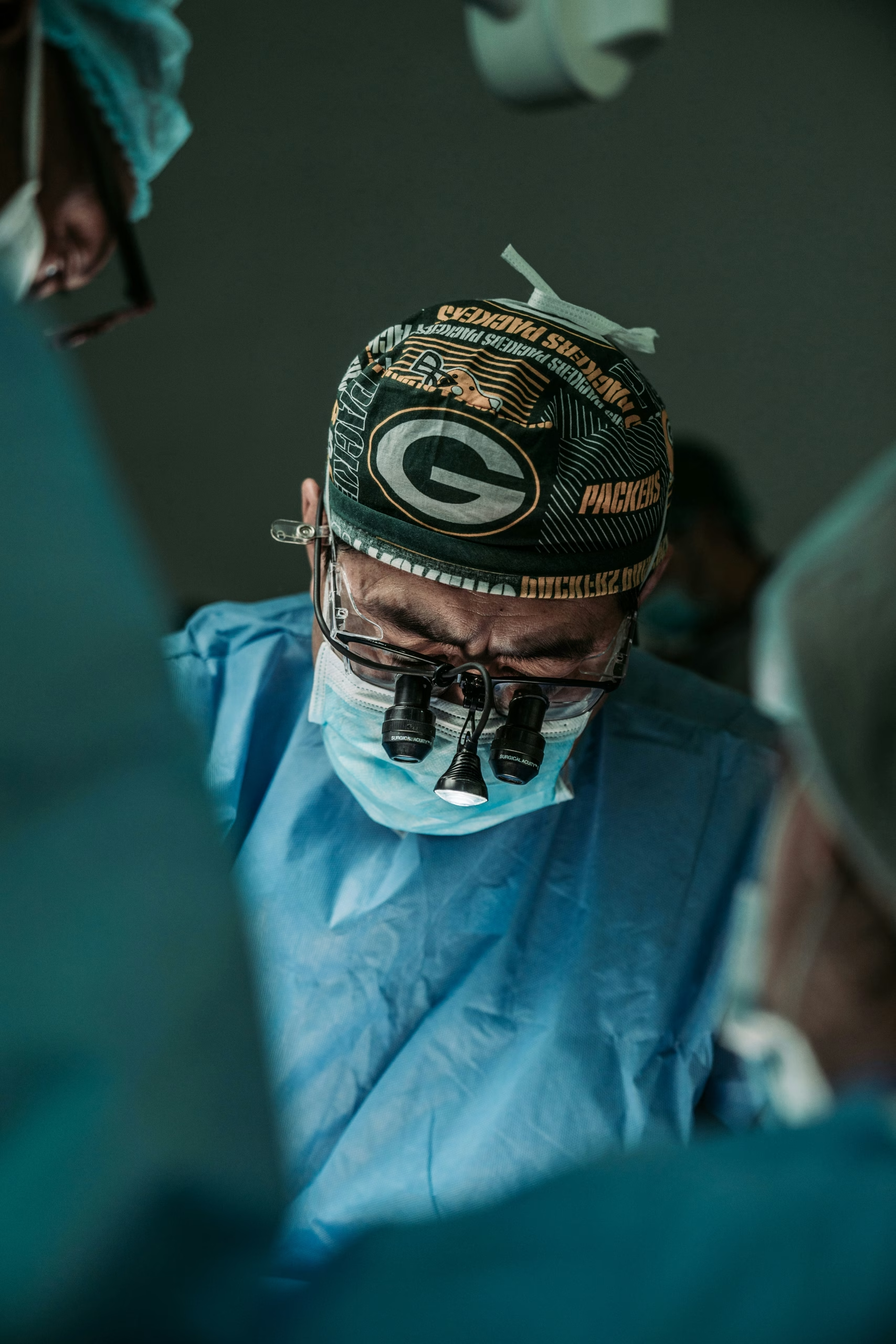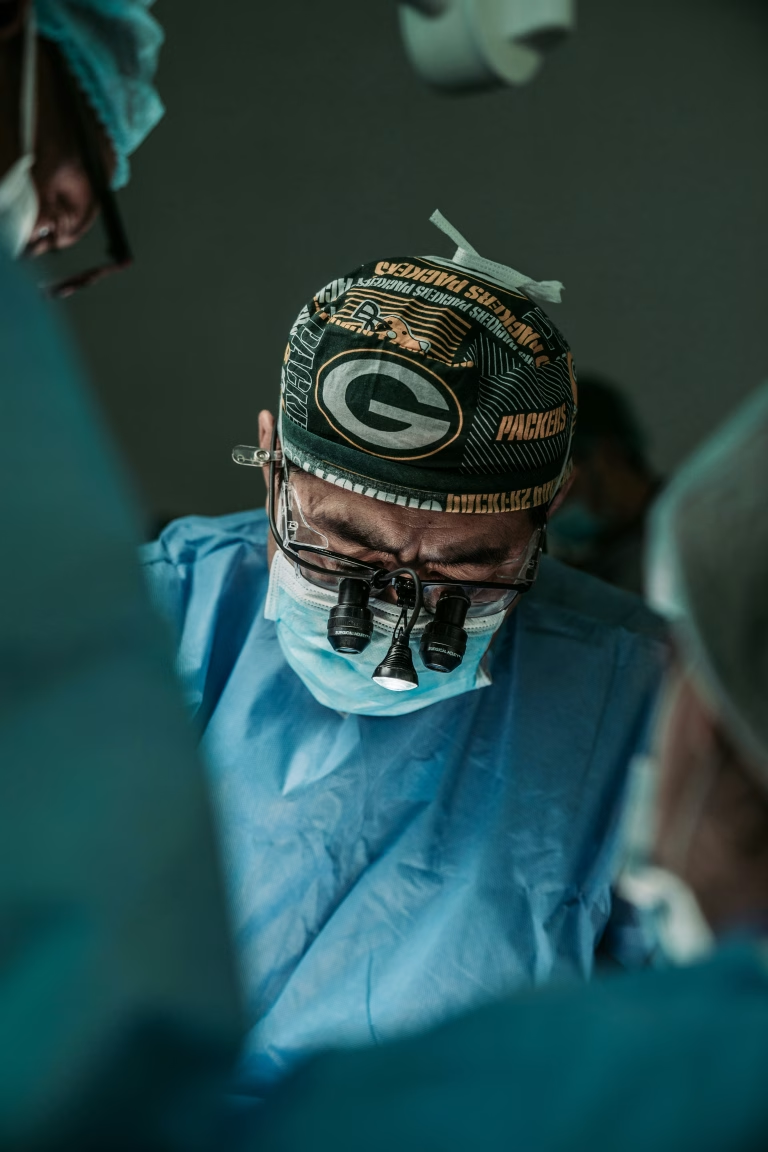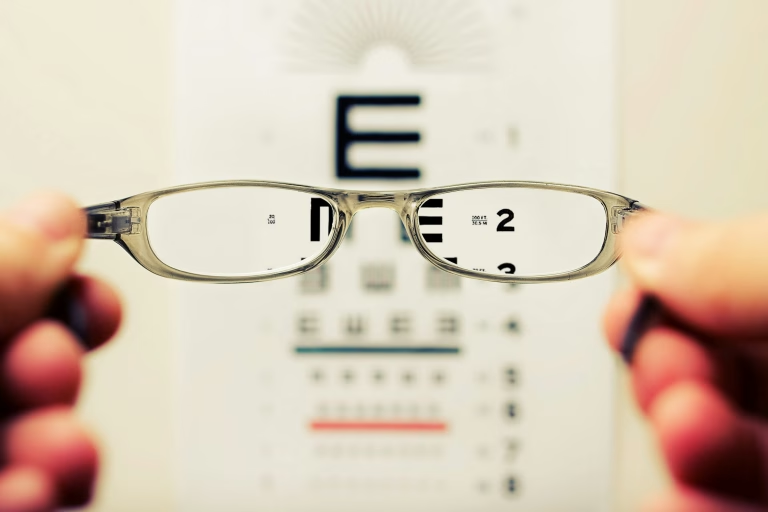Cataract Surgery at Advanced Eye Care Center: Restore Your Vision with Expert Care

More than 25 million Americans over age 40 develop cataracts, yet advanced cataract surgery at our Denton, TX center can restore clear vision in days. In this guide, you’ll discover what cataract surgery involves, why our Advanced Eye Care Center delivers superior outcomes, which surgical techniques and intraocular lenses we offer, what to expect during recovery, how costs and insurance apply, and how we address common patient concerns—all to help you regain crisp, unobstructed sight with expert care. Cataract Surgery: Advanced Eye Care Center in Denton, TX
What Is Cataract Surgery and How Does It Restore Vision?
Cataract surgery is a minimally invasive medical procedure that removes the eye’s cloudy natural lens and implants a clear intraocular lens (IOL), instantly improving visual acuity by allowing light to focus sharply on the retina. This ophthalmic procedure uses a micro-incision and precision instruments—often ultrasound or femtosecond laser—to break up and extract the opaque lens, then position a custom IOL for clear, glare-free sight. With vision restored in as little as one day, cataract surgery remains one of the safest and most effective eye surgeries available.
Cataract Surgery Overview
Cataract surgery involves removing the eye’s clouded natural lens and replacing it with a clear intraocular lens (IOL). This procedure is a common and effective treatment for restoring vision impaired by cataracts, allowing light to focus properly on the retina and improving visual acuity.
American Academy of Ophthalmology, Cataracts (2024)
This source provides a general overview of cataract surgery, which supports the article’s introduction to the procedure.
What Causes Cataracts and How Are They Diagnosed?
Cataracts develop when lens proteins clump together, scattering incoming light and producing blurred vision, glare, halos around lights, or muted colors. Age is the leading risk factor, although diabetes, prolonged UV exposure, certain medications, and eye injuries also accelerate lens clouding. An ophthalmologist diagnoses cataracts through a dilated eye exam, slit-lamp inspection, and visual acuity tests, confirming lens opacity and mapping its progression to plan the optimal timing for surgery. Early detection through routine screenings enables timely intervention before vision significantly declines.
Causes and Diagnosis of Cataracts
Cataracts develop when proteins in the eye’s lens clump together, causing blurred vision, glare, and changes in color perception. Age is the primary risk factor, but other factors like diabetes, UV exposure, and eye injuries can also contribute to cataract formation. Diagnosis typically involves a dilated eye exam and visual acuity tests.
National Eye Institute, Facts About Cataracts (2023)
This citation supports the article’s explanation of the causes and diagnostic methods for cataracts, providing a credible source for the information.
How Does Cataract Surgery Replace the Cloudy Lens?
During cataract extraction, a tiny incision—typically 2–3 mm—is created at the edge of the cornea. A phacoemulsification probe then uses ultrasonic waves to break the cloudy lens into fragments that are gently suctioned away. Once cleared, the surgeon inserts a folded IOL through the same incision, which unfolds and centers within the lens capsule. This seamless process replaces the clouded natural lens with a clear artificial one, immediately improving focus, contrast sensitivity, and color perception while minimizing incision-related trauma.
What Are the Benefits of Cataract Surgery at Our Denton Center?
Choosing our Denton practice means benefiting from board-certified ophthalmologists, state-of-the-art surgical suites, and personalized lens selection to match your lifestyle. We leverage phacoemulsification and femtosecond laser–assisted techniques to reduce healing time and enhance precision, while our dedicated care team provides detailed pre- and post-operative guidance. Patients experience rapid vision improvement, lower dependence on glasses, and a significantly reduced risk of glare and halos, ensuring a smoother recovery and lasting visual clarity.
Why Choose Our Advanced Eye Care Center in Denton TX for Cataract Surgery?
Our Advanced Eye Care Center in Denton, TX specializes exclusively in modern cataract and refractive eye surgery, combining surgical expertise with cutting-edge technology to optimize outcomes. We maintain a patient-centric approach, tailoring every step—from initial evaluation to long-term follow-up—to your unique anatomy and vision goals. This focus on individualized care and technical excellence positions our center as a leading provider of cataract surgery in North Texas.
What Expertise Do Our Ophthalmologists Bring to Cataract Surgery?
Our cataract surgeons hold fellowship training in anterior segment surgery and collectively perform hundreds of procedures each year, achieving success rates above 98 percent. Board certification and membership in national ophthalmology societies underscore their commitment to ongoing education in advanced cataract and lens-implant techniques. This depth of experience ensures meticulous surgical planning, precise lens calculations, and smooth intraoperative execution for consistently excellent outcomes.
How Do Advanced Surgical Techniques Improve Your Surgery Experience?
Phacoemulsification remains the gold standard for cataract removal, using ultrasound energy to gently fragment the lens through a micro-incision. Our femtosecond laser–assisted cataract surgery (FLACS) adds another level of precision by creating perfectly centered capsulotomies and lens fragmentation patterns. These advanced methods minimize ultrasound exposure, reduce incision size, and enhance lens positioning accuracy, which collectively shorten healing time and deliver sharper vision with fewer visual disturbances.
How Is Patient Care Personalized Before, During, and After Surgery?
Every patient undergoes a comprehensive pre-operative assessment that includes corneal mapping, optical coherence tomography (OCT), and lifestyle evaluation to recommend the ideal IOL. On surgery day, tailored anesthesia and real-time intraoperative guidance optimize comfort and safety. Post-operatively, our team offers same-day check-ins, detailed medication schedules, and additional vision-enhancing services—such as laser enhancements—to ensure each patient achieves their best possible visual outcome.
What Types of Cataract Surgery Are Available at Our Denton Clinic?
Our Denton clinic offers three main surgical approaches—phacoemulsification, laser-assisted cataract extraction (FLACS), and extracapsular cataract extraction (ECCE)—to address a wide range of lens opacities and patient needs. Each technique is selected based on cataract density, anatomical factors, and desired recovery speed, ensuring a custom-fit procedure that maximizes visual restoration with minimal invasiveness.
How Does Phacoemulsification Work for Cataract Removal?
Phacoemulsification employs an ultrasonic handpiece to emulsify the cloudy lens into tiny particles that are suctioned out through a 2–3 mm corneal incision. After removing the lens fragments, the surgeon inserts a foldable IOL, which unfolds within the capsular bag for stable centration. This approach offers rapid visual recovery, low complication rates, and compatibility with premium IOLs for enhanced refractive outcomes.
What Are the Advantages of Laser-Assisted Cataract Surgery (FLACS)?
Laser-assisted cataract surgery (FLACS) uses a femtosecond laser to perform key steps—such as capsulotomy creation and lens fragmentation—with micron-level accuracy. This technology reduces mechanical manipulation of the eye, lowers intraocular pressure spikes, and enables more consistent IOL positioning. FLACS patients often experience less discomfort, quicker healing, and more predictable refractive results compared to conventional methods.
When Is Extracapsular Cataract Extraction (ECCE) Recommended?
Extracapsular cataract extraction (ECCE) involves removing the lens nucleus in one piece through a slightly larger incision and is reserved for extremely dense or mature cataracts, or in cases of weak zonular support. Although recovery is longer than with phacoemulsification, ECCE remains a reliable option when modern techniques cannot safely fragment the lens, ensuring safe extraction and clear-lens implantation even in challenging scenarios.
Which Intraocular Lens (IOL) Options Are Offered for Cataract Surgery?
Selecting the right IOL is crucial for achieving your vision goals—whether you prioritize sharp distance focus, seamless near-to-far transitions, or precise astigmatism correction. We offer monofocal, multifocal, toric, and extended depth of focus (EDOF) lenses to match every lifestyle and refractive need.
| IOL Type | Attribute | Benefit |
|---|---|---|
| Monofocal IOL | Single-point focus | Sharp distance vision with minimal halos |
| Multifocal IOL | Multiple concentric zones | Clear near and far vision without glasses |
| Toric IOL | Cylinder-shaped design | Built-in astigmatism correction |
| EDOF IOL | Extended focal range | Smooth intermediate vision, reduced glare |
IOL Options and Benefits
Various intraocular lens (IOL) options are available, including monofocal, multifocal, toric, and extended depth of focus (EDOF) lenses. The choice of IOL depends on the patient’s lifestyle and vision goals, with each lens type offering different benefits such as improved distance vision, near and far vision without glasses, astigmatism correction, or enhanced intermediate vision.
Mayo Clinic, Cataract Surgery (2024)
This citation provides information on the different types of IOLs and their benefits, which aligns with the article’s discussion of lens options.
Each lens option supports distinct visual tasks—choosing the correct one depends on your daily activities and tolerance for optical phenomena such as halos and contrast loss.
What Is a Monofocal IOL and Who Is It Best For?
A monofocal IOL provides a single optimized focal point, most often set for distance vision. Patients who drive frequently or spend most of their time outdoors benefit from its crisp long-range clarity. While reading glasses may still be needed for near tasks, monofocal lenses deliver excellent contrast sensitivity and minimal visual distortions.
How Do Multifocal IOLs Provide Multiple Vision Focus?
Multifocal IOLs contain concentric rings with differing optical powers that split incoming light to simultaneously focus on near and distance targets. This design reduces dependency on reading glasses and provides a seamless transition between tasks, making it ideal for active individuals who value spectacle independence for activities like dining, driving, and screen work.
What Are Toric IOLs and How Do They Correct Astigmatism?
Toric IOLs integrate a cylinder-shaped optical zone that counteracts the corneal curvature irregularity responsible for astigmatism. By aligning the lens’s axis precisely with your astigmatic meridian, toric IOLs deliver sharper, more consistent vision at all distances without the need for additional glasses or contact lenses.
What Is an Extended Depth of Focus (EDOF) IOL?
EDOF IOLs use advanced wavefront-shaping technology to create a continuous focus range, enhancing intermediate vision while preserving distance clarity. This lens type reduces halos and glare compared to multifocal designs and suits patients who perform many computer-based or dashboard-viewing tasks, bridging the gap between standard and premium IOLs.
Why Advanced Eye Care Center in Denton, TX Excels in Cataract Surgery
Recovery from modern cataract surgery is swift, safe, and predictable—most patients notice clearer vision within 24 hours and achieve stable outcomes in 4–6 weeks. Effective aftercare protocols and patient adherence to instructions are key to minimizing inflammation, preventing infection, and securing lasting visual benefits.
How Long Is the Typical Recovery Time After Cataract Surgery?
Most patients resume normal activities within 1–2 days, experiencing significant vision improvement immediately. By week 1, inflammation has usually subsided and distance vision is sharp. Full stabilization of refractive outcomes and complete healing of microscopic corneal wounds occur by weeks 4–6, at which point patients enjoy consistent, clear vision without discomfort.
What Post-Operative Care Is Required for Optimal Healing?
Post-operative care includes a prescribed regimen of antibiotic and anti-inflammatory eye drops for 2–4 weeks, use of a protective eye shield during sleep for the first 3 nights, and avoidance of water-related activities (swimming, hot tubs) for 1 week. Gentle lid hygiene and UV-protective sunglasses further support healing while reducing the risk of infection and irritation.
What Are Common Recovery Tips to Ensure Success?
Patients should wear wrap-around sunglasses outdoors to block UV light, avoid heavy lifting and strenuous exercise for 1 week, follow all prescribed drop schedules without skipping doses, and attend scheduled follow-up visits to monitor intraocular pressure and healing progress. Adhering to these guidelines enhances comfort and secures the best possible visual outcome.
How Much Does Cataract Surgery Cost at Our Denton Eye Care Center?
The total investment in cataract surgery includes surgeon fees, facility charges, and the chosen IOL’s cost. We maintain transparent pricing and work with patients to maximize insurance benefits and explore financing to make advanced cataract care accessible.
What Insurance Plans Cover Cataract Surgery?
Most major insurers—Medicare, UnitedHealthcare, Blue Cross Blue Shield, Aetna, Cigna—cover standard cataract surgery and monofocal IOL implantation. Premium IOLs and laser-assisted procedures may require supplemental coverage or patient cost-share; our staff verifies benefits and assists with pre-authorization to minimize out-of-pocket expenses.
Are Financing Options Available for Cataract Surgery?
We partner with leading medical financing providers to offer low-interest, extended-term payment plans and zero-interest promotional programs. Flexible financing makes premium IOL upgrades and FLACS procedures affordable by spreading costs over 6–24 months without compromising care quality.
What Are the Most Frequently Asked Questions About Cataract Surgery in Denton TX?
Patients often wonder about comfort, safety, age requirements, and compatibility with other eye conditions. Below is a concise overview of these common concerns and our reassuring approach to each.
- Pain and Safety – Cataract surgery is performed under topical anesthesia, ensuring a painless experience with minimal sedation.
- Success Rates – With modern techniques and experienced surgeons, our center maintains a 98 percent+ success rate and a low complication profile.
- Age Eligibility – There is no strict age limit; surgery is recommended when cataracts impair daily activities, regardless of whether patients are in their 40s or 90s.
- Co-existing Eye Conditions – Conditions like glaucoma or macular degeneration require specialized planning, but surgery is often safe and beneficial when coordinated with comprehensive eye care.
By addressing these concerns head-on, we help patients feel informed, confident, and ready to restore clear vision.
At every step, our Advanced Eye Care Center in Denton, TX emphasizes trust, personalized service, and innovative techniques—so you can look forward to life with sharp, vibrant vision once again. Schedule your consultation today to explore your treatment plan and lens options in detail.
Learn more about our IOL offerings or speak with our team about financing solutions.







